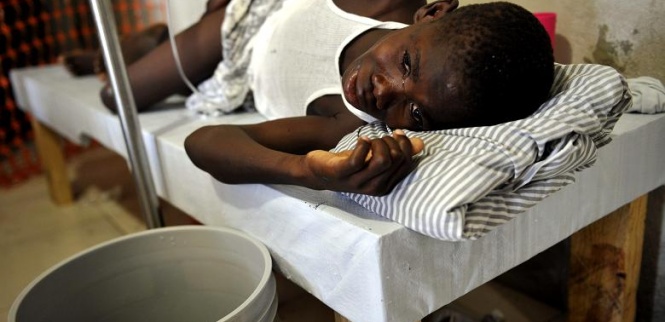The onset of the rains has put health practitioners in the central region on the alert due to fears of a possible outbreak of cholera.
Central Regional Deputy Director of Public Health, Dr. Kwabena Sarpong who raised the alarm said sanitary conditions need to be improved to avert any outbreak.
The cyclical nature of cholera outbreak in Ghana is a canker that requires prompt action in order to elevate the country’s public health to internationally acceptable standards.

Dr. Sarpong in an interview with ATL FM News cautioned that cholera could thrive due to the insanitary conditions in the slums and places with poor environmental sanitation.
“You have people recording diarrhoea cases and it means they are actually drinking unsafe water or they are eating contaminated food. We expect that we are likely to see cases if we don’t create a lot more awareness and sensitization.”
According to Dr. Sarpong, although the Covid-19 preventive measures could control the rate of infection of cholera, much sensitization is still needed in its prevention.
Much as the region has not recorded any case of Cholera, Dr. Kwabena Sarpong advised it is imperative for people to begin guarding against it.
“It’s too early to say it [cholera] can’t be an issue because if you go to some of our slums, we are preaching social distancing so people are not likely to aggregate and potentially come together but not all of us are observing social distancing so it’s possible that we could get cases. The possibility is there but it is gone down because of COVID.”
In this regard, he noted his outfit has begun sensitization on cholera alongside the education on Covid-19.
“We’re doing a lot more education on Covid19 and cholera. That’s where we are targeting, that’s where we are focusing a lot more now apart from Covid”, he mentioned.
In addition to observing the Covid-19 preventive protocols, Dr. Sarpong has advised the public to also observe personal hygiene and also be mindful of what they consume.
“Improve personal hygiene, wash your hands, eat warm foods, and wash fruits and vegetables. If we use the public health measures, hand washing, social distancing and respiratory etiquettes, we are not likely to see many of these infections in our communities, he said”
Ghana has continued to record intermittent cholera outbreaks since the 1980s, with these becoming increasingly frequent in recent years. The most recent, devastating outbreak that occurred in June 2014 spilled over to 2015. As of 4th January 2015, a total of 28, 922 cases including 243 deaths were recorded, representing a case fatality rate of 0.8%. The outbreak affected 130 districts out of the 216 districts in all 10 regions of Ghana.
Until 2014, the highest number of cholera cases recorded in a single year during an outbreak was 15, 032, reported in 1982. During the 2014 outbreak, the proportion of cholera cases recorded was highest among those aged 20–49 years, representing 70% of the cases.
In 2014 Ghana recorded a staggering 17,000 cases of Cholera cases, with 150 deaths, a figure said to be the worse in 30 years. The outbreak was nationwide.
The following year, 2015, a total of 591 cases were recorded with five deaths with only two regions, Northern and Upper East spared the outbreak.
The covid-19 preventive protocols which include frequent washing of hands with soap under running water, social distancing, ban on public gathering and respiratory etiquette; using of tissue for sneezing and coughing have reduced contamination and environmental pollution to an extent.
SOURCE: Victoria Adonu/ATLFMNEWS


























